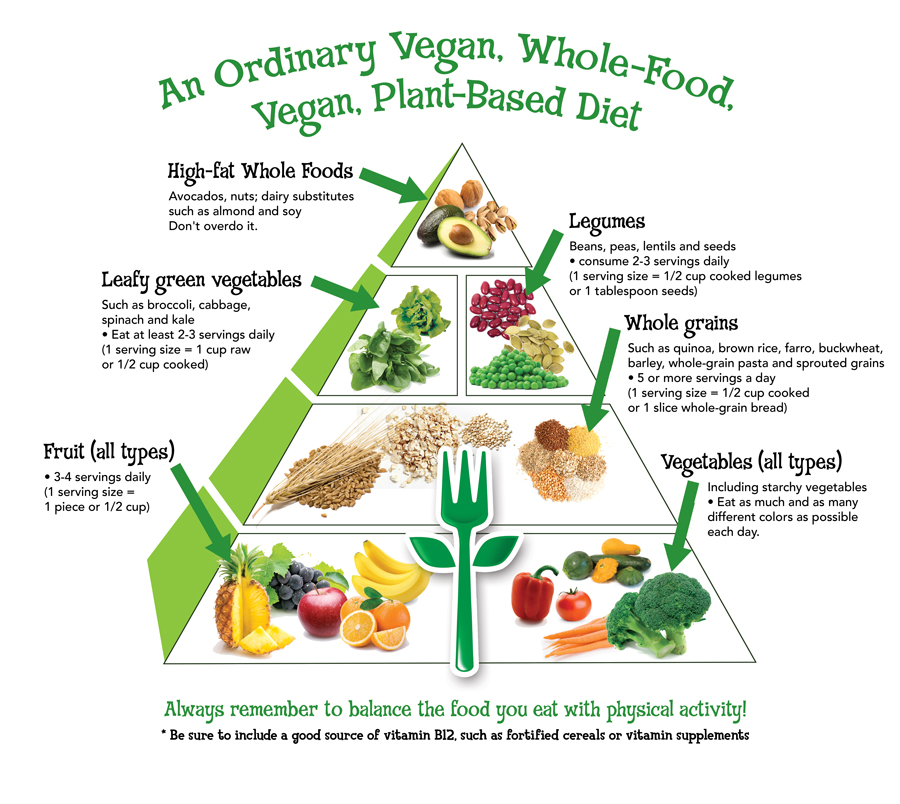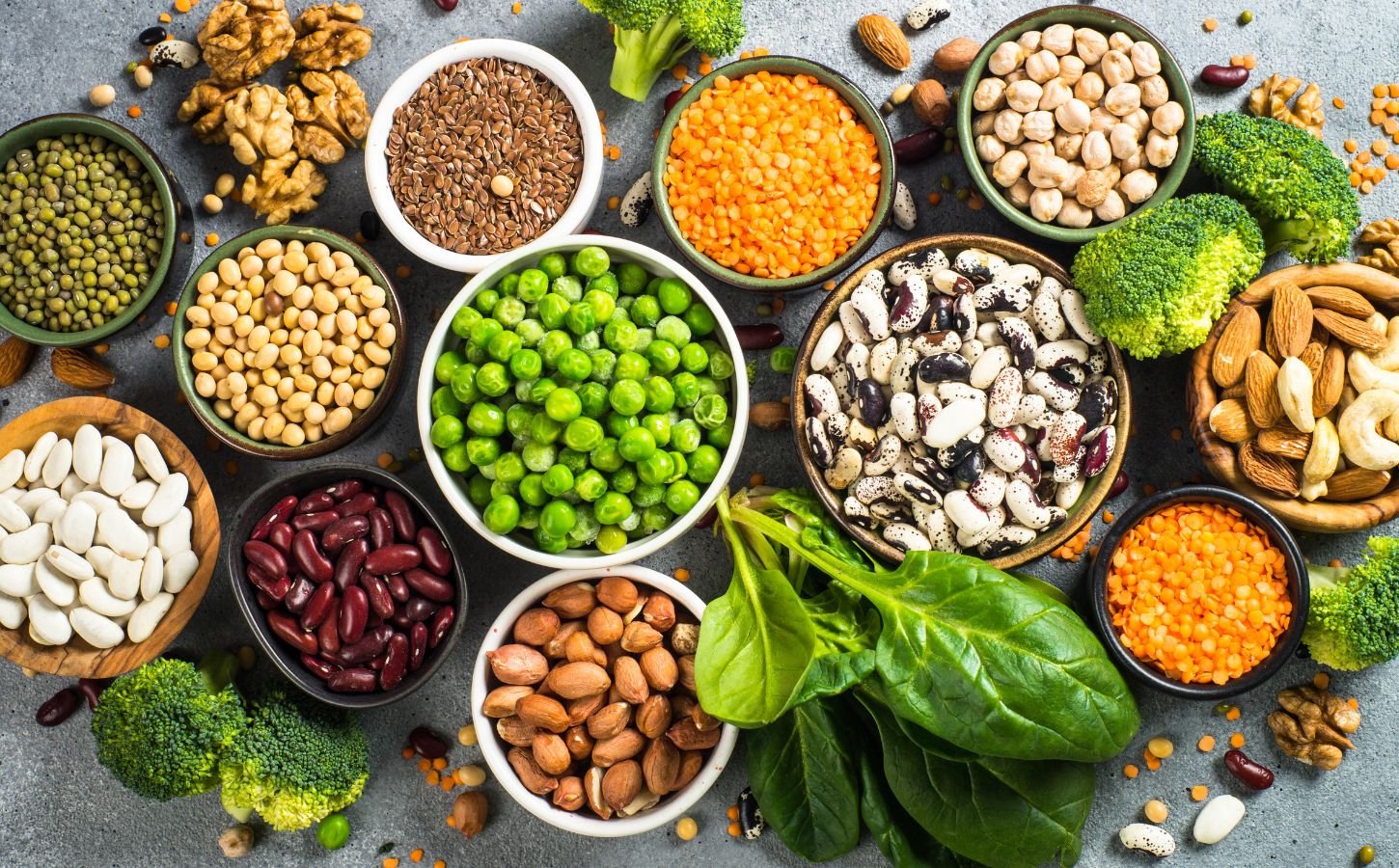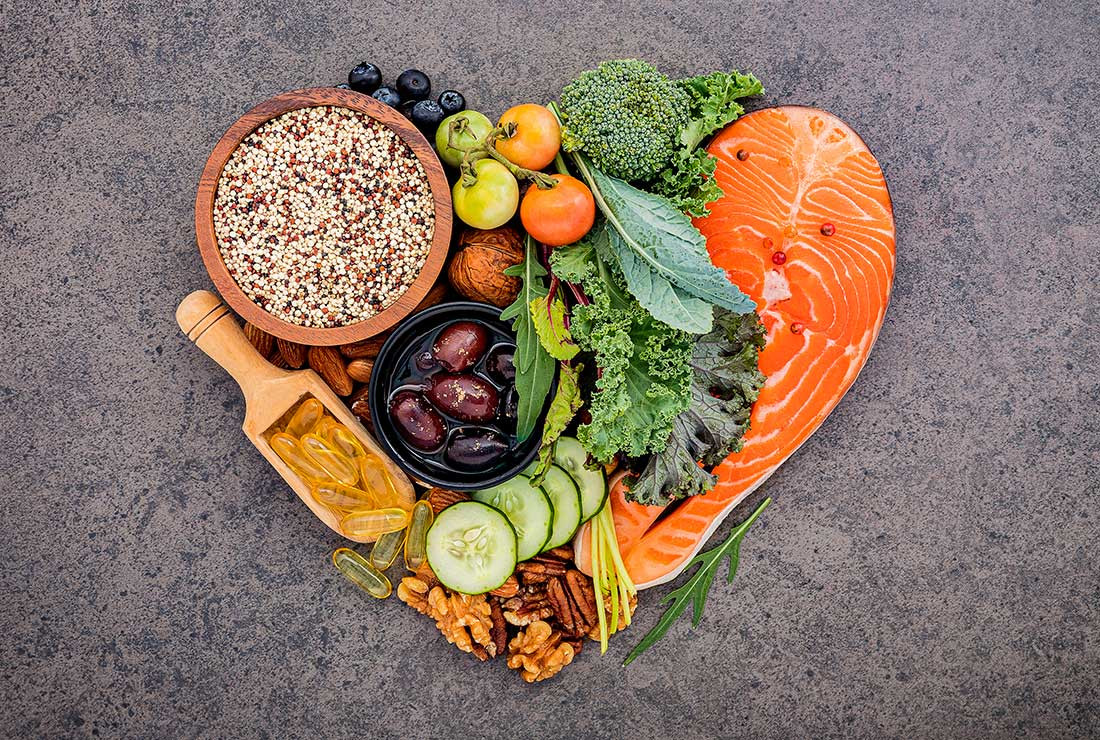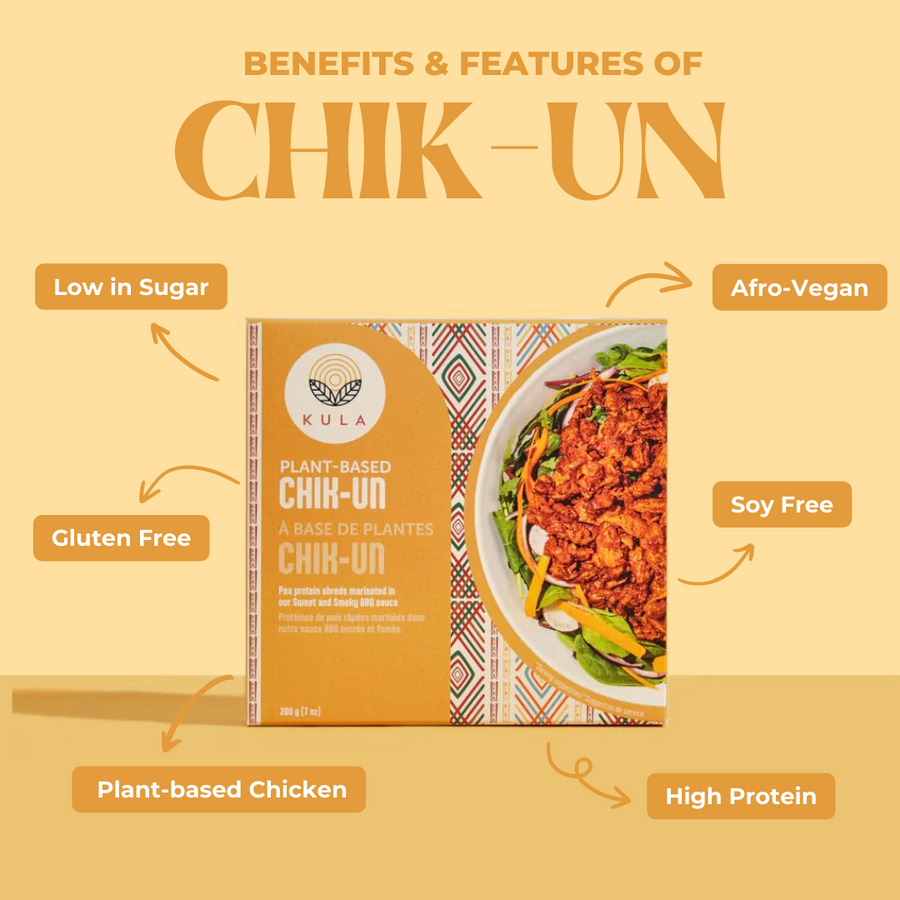Everything About Healthy Food: Benefits of Checking Out Plant Based Choices
The discussion bordering plant-based diet plans has actually acquired significant attention in the last few years. Lots of people are discovering the potential health and wellness benefits, nutritional benefits, and ecological effects connected with these nutritional options. As people end up being much more familiar with their food's influence on wellness and sustainability, questions arise regarding the usefulness of adopting such a lifestyle. What particular changes can one expect, and just how might these selections reshape not only personal wellness but additionally the planet's future?
Recognizing Plant-Based Diet Regimens
Although lots of people link plant-based diet plans primarily with vegetarianism or veganism, these diets can incorporate a vast array of eating patterns that prioritize whole, minimally refined plant foods. Such diet plans commonly include fruits, veggies, whole grains, nuts, legumes, and seeds, while removing or limiting animal items. This versatility allows people to tailor their dietary selections according to dietary demands and individual preferences. Some might adopt a largely plant-based diet regimen while still periodically consuming meat or dairy, often referred to as a flexitarian technique. The emphasis remains on integrating more plant foods, which can bring about a diverse array of dishes and flavors. Recognizing these various analyses of plant-based eating is important for appreciating its access and appeal in contemporary food culture.
Health And Wellness Benefits of Plant-Based Foods
The health benefits of plant-based foods are considerable, supplying a nutrient thickness benefit that supports total wellness. Study suggests that these foods can enhance heart wellness and play a vital role in reliable weight monitoring. By incorporating extra plant-based options, people might boost their nutritional selections and promote long-lasting health and wellness.
Nutrient Thickness Advantage
Nutrient density plays an important duty in the health and wellness benefits of plant-based foods, making them a compelling choice for those seeking a well balanced diet. Plant-based foods, such as fruits, vegetables, legumes, nuts, and whole grains, are typically rich in essential vitamins, minerals, and antioxidants while being reduced in calories. This high nutrient thickness allows individuals to eat less calories while still satisfying their dietary demands. Furthermore, these foods are packed with dietary fiber, promoting gastrointestinal health and wellness and helping in weight management. By incorporating nutrient-dense plant-based choices, customers can enhance their overall health and wellness, support their body immune systems, and decrease the risk of chronic conditions. Eventually, the nutrient thickness of plant-based foods emphasizes their importance in a health-conscious lifestyle.
Heart Health Enhancement

Weight Management Assistance
In addition to advertising heart health, a plant-based diet plan can significantly help in weight monitoring. This nutritional strategy stresses entire foods such as fruits, vegetables, legumes, nuts, and entire grains, which are typically lower in calories and higher in fiber contrasted to animal-based items. The high fiber content assists enhance satiety, reducing general calorie intake. In addition, plant-based diet regimens are usually rich in necessary nutrients while low in undesirable fats, making it less complicated to keep a healthy weight. Plant Based Beef. Study indicates that individuals that adopt a plant-based lifestyle tend to have reduced body mass indexes (BMIs) and experience more successful weight loss compared to those who consume meat-heavy diet plans. Embracing plant-based options is a tactical choice for efficient weight management.
Nutritional Worth of Plant-Based Components
Plant-based components are abundant in crucial nutrients, using a diverse range of vitamins, minerals, and antioxidants that add to general wellness. A comparison of protein sources reveals that while pet items are typically viewed as remarkable, lots of plant-based choices offer sufficient healthy protein and other useful substances. Recognizing the nutritional worth of these components can assist individuals make notified nutritional choices.
Vital Nutrients in Plants
Nutrient-rich ingredients discovered in plants provide a diverse array of vital nutrients that add greatly to total health and wellness. These components are rich in vitamins A, C, and K, which sustain immune feature, vision, and blood clotting, specifically. On top of that, plants offer vital minerals such as calcium, magnesium, and potassium, vital for heart wellness, muscular tissue feature, and bone strength. The visibility of fiber in plant-based foods aids food digestion and promotes a healthy digestive tract microbiome. Anti-oxidants, located abundantly in vegetables and fruits, aid fight oxidative stress and decrease swelling. Numerous plant foods are reduced in calories yet high in nutrients, making them an outstanding selection for those looking for to preserve a healthy and balanced weight while guaranteeing excellent nutrient consumption.

Contrasting Protein Sources
Protein sources vary substantially in their nutritional accounts, with plant-based active ingredients supplying one-of-a-kind benefits. Unlike pet healthy proteins, which commonly consist of saturated fats and cholesterol, plant proteins often tend to be reduced in these unhealthy components. Legumes, nuts, seeds, and entire grains are rich in crucial amino acids, fiber, vitamins, and minerals. For example, lentils supply high protein content along with considerable iron and folate, while quinoa is a total healthy protein, providing all nine essential amino acids. Furthermore, plant-based healthy proteins are commonly accompanied by antioxidants and phytochemicals that support general health. The change to plant-based healthy protein resources not just enhances dietary consumption yet additionally aligns with sustainable dietary practices, reducing ecological effect and advertising long-term health advantages.
Environmental Effect of Plant-Based Consuming
As awareness of environment modification grows, many individuals are discovering sustainable nutritional options that can considerably minimize their ecological impact. Plant-based eating has actually become a substantial contributor to minimizing greenhouse gas emissions, which are largely connected with livestock production. The cultivation of fruits, grains, legumes, and vegetables normally requires less sources, such as water and land, compared to pet farming. Additionally, plant-based diet plans can result in reduced logging, as much less land is required for grazing animals or growing pet feed. By shifting towards plant-based choices, customers can support biodiversity and promote much healthier communities. Generally, accepting plant-based consuming not only benefits personal health and wellness but additionally stands for a crucial action towards ecological sustainability and preservation initiatives.
Conquering Common Misconceptions
While many people recognize the advantages of a plant-based diet plan, a number of false impressions usually prevent them from fully accepting this way of living. A common belief is that plant-based diet regimens lack adequate protein; nonetheless, countless plant sources, such as beans, nuts, and tofu, supply ample protein. Furthermore, some presume that this diet regimen is expensive, when as a matter of fact, staples like beans, rice, and seasonal veggies can be quite budget-friendly. Another misconception is that plant-based eating is overly limiting, whereas it actually supplies a diverse variety of tastes and foods. Ultimately, lots of fret that a plant-based diet might lead to shortages, yet with proper preparation, individuals can obtain all necessary nutrients, consisting of minerals and vitamins, while appreciating a vast selection of scrumptious meals.
Tips for Transitioning to a Plant-Based Way of living
Making the change to a plant-based way of living can be an enhancing experience, though it commonly needs some support to navigate the initial modifications. Individuals are encouraged to start progressively, integrating even more fruits, veggies, beans, and whole grains into their dishes while lowering meat and dairy products intake. Dish planning is necessary; preparing a regular menu can aid ease the modification and stop final undesirable choices. Checking out brand-new recipes and cooking techniques can also improve the experience and preserve exhilaration about plant-based consuming. In addition, signing up with support groups or communities can offer inspiration and share beneficial tips. Remaining educated concerning nourishment assurances balanced meals, avoiding deficiencies while promoting a healthy and balanced, gratifying plant-based way of life.

Delicious Plant-Based Meal Ideas
Checking out delicious plant-based meal ideas can inspire people to accept a much more nutritious diet plan. One prominent choice is a passionate quinoa salad, including cherry tomatoes, cucumber, and a tangy lemon-tahini clothing. Another fave is a savory lentil stew, packed with carrots, celery, and aromatic herbs, excellent for a calming supper. For morning meal, over night oats made with almond milk, chia seeds, and covered with fresh berries offer a nutritious start to the day. In addition, a dynamic vegetable stir-fry with tofu and a selection of vivid veggies can be a quick yet pleasing dish. Finally, velvety avocado salute on whole-grain bread, sprayed with flavors and seeds, uses a simple yet flavorful treat. These meals showcase the variety and richness of plant-based eating.

Frequently Asked Questions
Can a Plant-Based Diet Regimen Give Enough Healthy Protein?
The inquiry of whether a plant-based diet plan can provide enough protein is common. Numerous resources, consisting of vegetables, nuts, Plant Based Beef seeds, and entire grains, can fulfill protein needs effectively, sustaining a balanced and nutritious diet regimen for individuals.
Are Plant-Based Diet Regimens Appropriate for Kid?
The viability of plant-based diet plans for children depends upon careful preparation. Adequate nutrients need to be assured, consisting of minerals, vitamins, and healthy proteins. With correct advice, such diets can support healthy growth and development in children.
How Do I Eat in restaurants on a Plant-Based Diet?
Eating out on a plant-based diet regimen involves looking for dining establishments with varied food selections, requesting adjustments, and checking out vegan-friendly options. Planning in advance and communicating dietary choices can boost the dining experience while preserving nutritional selections.
What Prevail Allergens in Plant-Based Foods?
Typical irritants in plant-based foods include soy, gluten, nuts, and seeds - Plant Based Chicken. People adhering to a plant-based diet should know these irritants and review labels thoroughly to stay clear of damaging reactions and guarantee secure intake
Can Plant-Based Diets Assist With Weight Management?
Research study indicates that taking on a plant-based diet might promote weight reduction as a result of its usually lower calorie density and higher fiber material. This combination can boost satiety, helping individuals manage their caloric consumption effectively. Several individuals associate plant-based diet plans generally with vegetarianism or veganism, these diet regimens can incorporate a vast array of consuming patterns that prioritize whole, minimally refined plant foods. Nutrient thickness plays an important role in the health advantages of plant-based foods, making them an engaging option for those looking for a well balanced diet plan. Plant-based diets have been revealed to markedly enhance heart health and wellness, as they commonly include elements that sustain cardio feature. In enhancement to promoting heart health, a plant-based diet regimen can substantially help in weight management. An usual idea is that plant-based diet regimens lack adequate protein; nevertheless, countless plant sources, such as beans, nuts, and tofu, give ample protein.